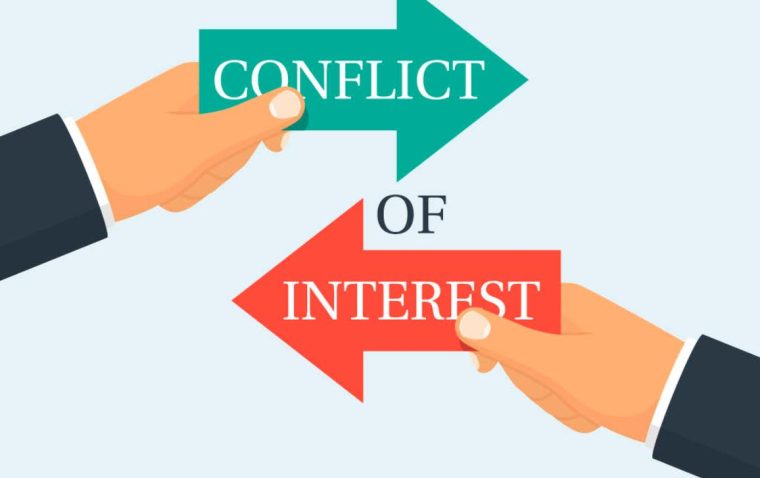A personal injury claim or a lawsuit is a legal dispute stemming from an injury or accident that harms you in some way. The injury or damages have to be proven the fault of someone else. Fault is known as liability, and once that’s established, the party that’s liable has to pay compensation to the injured party. The compensation is known as damages.
These damages can be agreed on through a negotiated settlement or mandated through a court order.
If you hire a personal injury attorney like simonlawpc, to represent you in one of these cases, they’ll investigate it, discover the parties potentially at fault, make a liability determination and ultimately present your case to the other side or potentially to a court.
The liable parties in these cases often have insurance, so the damages awarded are usually paid by the insurer. An insurance company will do its own investigation and make a liability decision from that.
If there’s no agreement on liability, the lawyer representing you may file a formal lawsuit, and a jury in a civil court has the final say on who’s at fault.

Most injury claims come about because one or more parties acted with negligence. Negligence is legally conduct that doesn’t meet the standard of care expected by a reasonable person in a similar situation. Negligence also has to harm another person.
There are four elements of negligence that have to be proven for someone to be held liable in a personal injury case—duty, breach, causation, and damages.
Personal injury cases can be complex and challenging, so if you think you have a case, you’ll likely speak to personal injury lawyers. These attorneys are typically paid on a contingency fee basis, though, so if you don’t get paid, they don’t. That means they’re not going to take a case they don’t think they have a chance of settling or winning.
With that in mind, below are six reasons a personal injury attorney might turn down a case.
1. You Waited Too Long

State laws set out a time limit on how long you have to file personal injury lawsuits. This is known as a statute of limitations. In many states, it’s two years from the date of your injury, but again, it’s based on the laws in your state.
If your time legally runs out, there’s nothing a lawyer can do, even if you deserve compensation for your damages.
2. Your Injuries Aren’t Severe
Just because you’re injured doesn’t mean it automatically warrants a personal injury lawsuit. It’s somewhat common for attorneys to decline cases because the injuries simply aren’t serious enough, even if the carelessness or negligence of someone else caused them.
Lawsuits are time-consuming and expensive. Even going through the process of basic negotiations for a settlement can take a lot of time. If your damages aren’t substantial, it may not be worth an attorney spending their time on it. A lawyer can incur a range of fees when working on a case, including the costs of hiring expert witnesses, court and filing fees, and witness depositions.
If your injuries aren’t very serious, the settlement or court verdict will probably be low. The case may be dismissed altogether.
3. Accident Circumstances

When an attorney reviews a possible case, they’re considering how the accident occurred. In order to hold someone legally responsible, they must have breached a duty. Basically, that means the party that’s responsible must have done something wrong that harmed you as the victim. Being injured on its own isn’t enough to prove someone else’s liability.
Proving fault or negligence is a key element of a successful personal injury case. If an attorney assesses the facts of your case and doesn’t feel they can prove that another party holds responsibility, they could turn down the case.
4. The Defendant Has No Assets
Even if you have a potentially strong case, if there’s nothing to go after on the part of the defendant, a lawyer could decide it’s not worth it to invest in your case.
If you’re hit by a car as a pedestrian, for example, and you’re severely hurt, a court could very likely rule in your favor if you pursue a legal claim.
Even if you’re awarded damages, though, that doesn’t mean you’re going to be paid. If the defendant doesn’t have assets to pay a judgment, you can’t collect the damages you’re owed.
In the majority of cases of personal injury, as a plaintiff, you recover money from the insurance provider of the liable party, but sometimes defendants are uninsured or underinsured.
5. Conflict of Interest

Lawyers have to follow strict ethical codes. One rule they must follow is avoiding potential conflicts of interest. If taking your case would create a conflict of interest with another client, then a lawyer can refuse to take it.
6. You’ve Been Turned Down By Other Lawyers
It’s normal and even advisable to speak to a few attorneys before hiring someone, but if you’ve spoken with a lot of other lawyers and they’re refused your case, this can be a red flag. If you mention it to the lawyer you’re speaking to, they may start to wonder what the problem is.
If you truly believe that you have a personal injury case that’s viable, you want to present it to potential attorneys in the right way.
You want to show them that you’re a reasonable person with similar expectations. If you come off as having unrealistic expectations, it’s going to come across poorly to attorneys.
You want to keep things simple when you’re speaking to attorneys and get straight to the point.
Also, remember that if an attorney does turn you down, it might not be because you don’t have a strong case. There could be personal reasons, like they think it could get complex and they don’t have time to take on the workload. Ask them in these situations if they have any referrals of attorneys who might be interested in your case.
